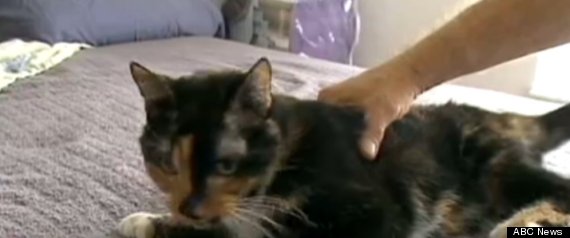2 week-old kitten survives huge fire
Cats prefer cat music
Post your cat today

New Zealand's cat eradication campaign
New Zealand is an amazing, gorgeous country with unique wildlife found nowhere else in the world. And cats are killing them.
Lost cat travels 190 miles home
Last November, Jacob and Bonnie Richter took their cat Holly on vacation with them. They traveled in their motor home from West Palm Beach to Daytona, Florida. Holly, a four year old tortoiseshell, was doing pretty well until someone set off fireworks too close to the Richters' motor home. Holly shot out the open door and was gone in a flash.
Not using litter box
My 5yr old cat started pooping on carpet thanksgiving when I was gone for 2weeks. I've been gone before in past no problem. He only does this in the middle of the night so I can't catch him. He lives with a 3 yr old cat. Dr. Says he fine medically. I don't know if I should scold him so far I have ignored it. Obviously he is upset about something. Any suggestions? Thanks Sharon.cox44@yahoo.com
Do you love your cats enough to tattoo them on your back?
As cat lovers, we love our kitties. That's how it works. Each one has its own unique personality, leaving its own mark on your life as they pass through on their too-short journeys with us. Each cat owner chooses to immortalize their beloved pets in a different way. Some more different than others.
Adopt a black cat!
Cat coat color and personality: connected?
A recent study tentatively concluded that purebred cats are friendlier than mixed-breed cats. It's a pity that study was so inept, though. It has been fairly well established decades ago that the single biggest predictor of a cat's friendliness toward humans is how much it was handled during its earliest weeks. Without controlling for this factor, any study on cat personality is going to be totally off base.







